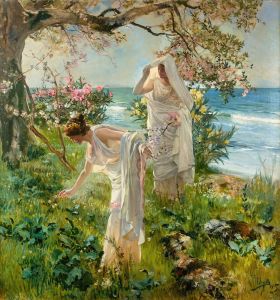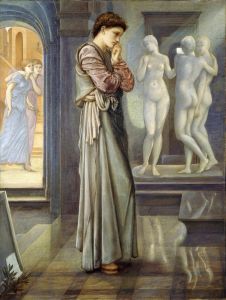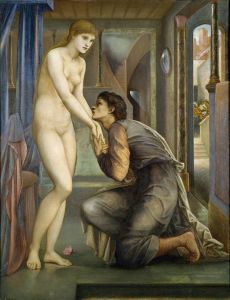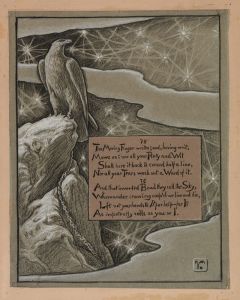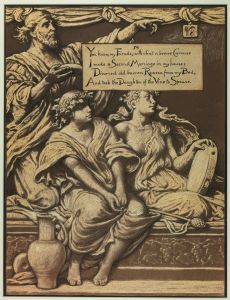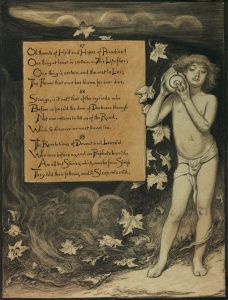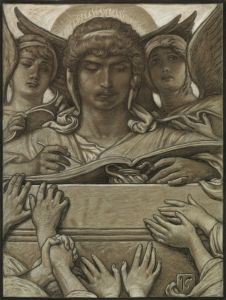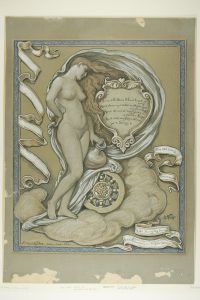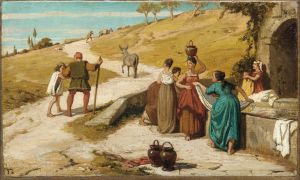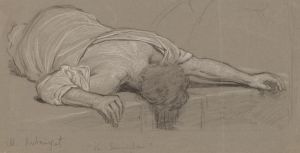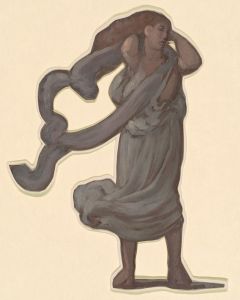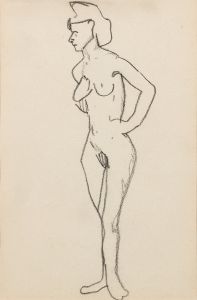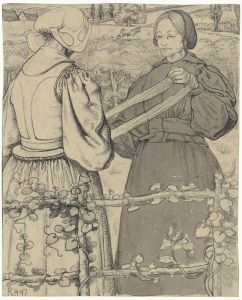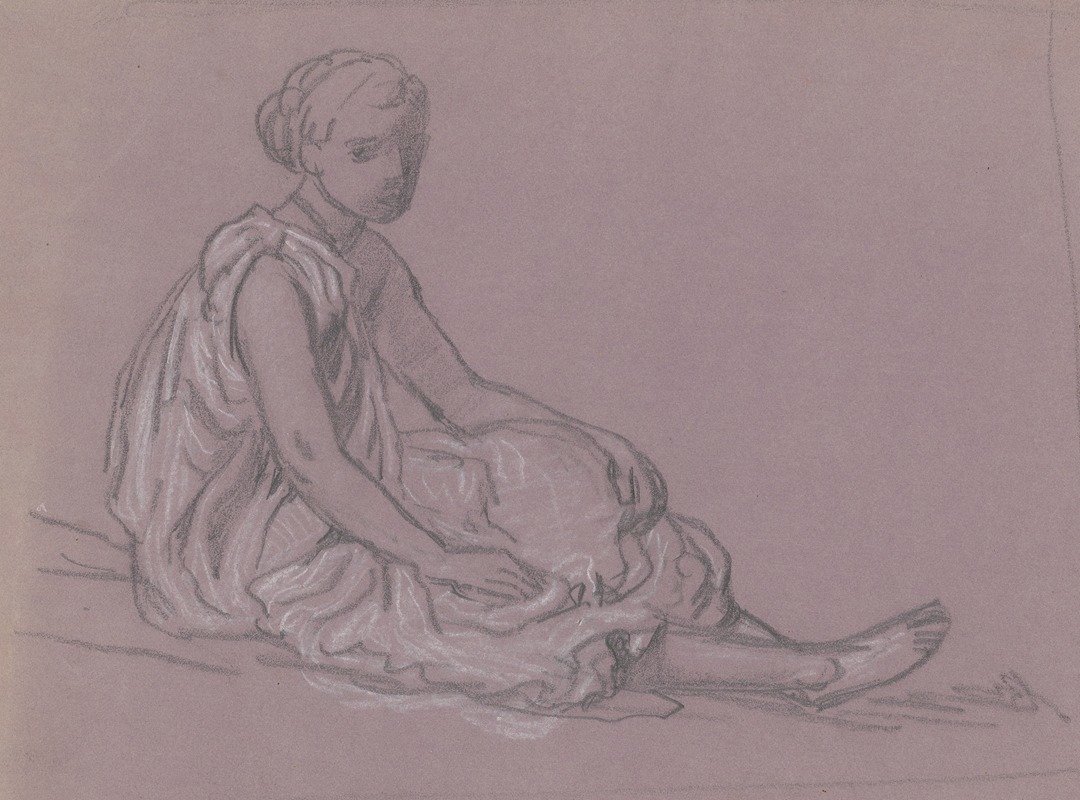
Study for ‘Greek Girls Bathing’ XV
A hand-painted replica of Elihu Vedder’s masterpiece Study for ‘Greek Girls Bathing’ XV, meticulously crafted by professional artists to capture the true essence of the original. Each piece is created with museum-quality canvas and rare mineral pigments, carefully painted by experienced artists with delicate brushstrokes and rich, layered colors to perfectly recreate the texture of the original artwork. Unlike machine-printed reproductions, this hand-painted version brings the painting to life, infused with the artist’s emotions and skill in every stroke. Whether for personal collection or home decoration, it instantly elevates the artistic atmosphere of any space.
Elihu Vedder was an American symbolist painter, born on February 26, 1836, in New York City. He is best known for his allegorical works and contributions to the symbolist movement in art. Vedder spent a significant portion of his life in Italy, where he was influenced by the classical art and culture that surrounded him. His works often reflect a blend of classical themes with a mystical or symbolic twist.
"Study for ‘Greek Girls Bathing’ XV" is one of Vedder's many studies that explore classical themes, in this case, the depiction of Greek girls engaged in the act of bathing. This study is part of a series of works where Vedder delves into the exploration of form, movement, and the human figure, drawing inspiration from ancient Greek art and mythology. The study likely served as a preparatory work for a larger composition or as an exploration of themes that Vedder was interested in at the time.
Vedder's fascination with classical antiquity is evident in his choice of subject matter. The depiction of bathing scenes has a long tradition in art history, often associated with themes of purity, beauty, and the divine. In ancient Greek culture, bathing was not only a daily ritual but also a social activity, often depicted in art as a moment of leisure and grace. Vedder's study captures this essence, focusing on the elegance and fluidity of the figures.
The study likely emphasizes the use of light and shadow to highlight the contours of the human body, a technique that Vedder mastered through his extensive training and experience. His time in Italy exposed him to the works of Renaissance masters, which influenced his approach to composition and form. Vedder's ability to convey emotion and narrative through his studies is a testament to his skill as an artist.
While specific details about "Study for ‘Greek Girls Bathing’ XV" are limited, it is clear that this work fits within Vedder's broader oeuvre, characterized by a deep interest in symbolism, mythology, and the human condition. His works often invite viewers to ponder deeper meanings and reflect on the interplay between the ancient and the modern.
Vedder's contributions to art extend beyond his paintings; he was also a poet and illustrator, known for his illustrations of Edward FitzGerald's translation of "The Rubaiyat of Omar Khayyam." His diverse body of work and his ability to blend different artistic influences make him a significant figure in the symbolist movement.
Elihu Vedder passed away on January 29, 1923, in Rome, Italy, leaving behind a legacy of art that continues to be studied and appreciated for its depth and beauty. His works, including studies like "Greek Girls Bathing," remain a testament to his artistic vision and his ability to capture the timeless qualities of the human experience.





